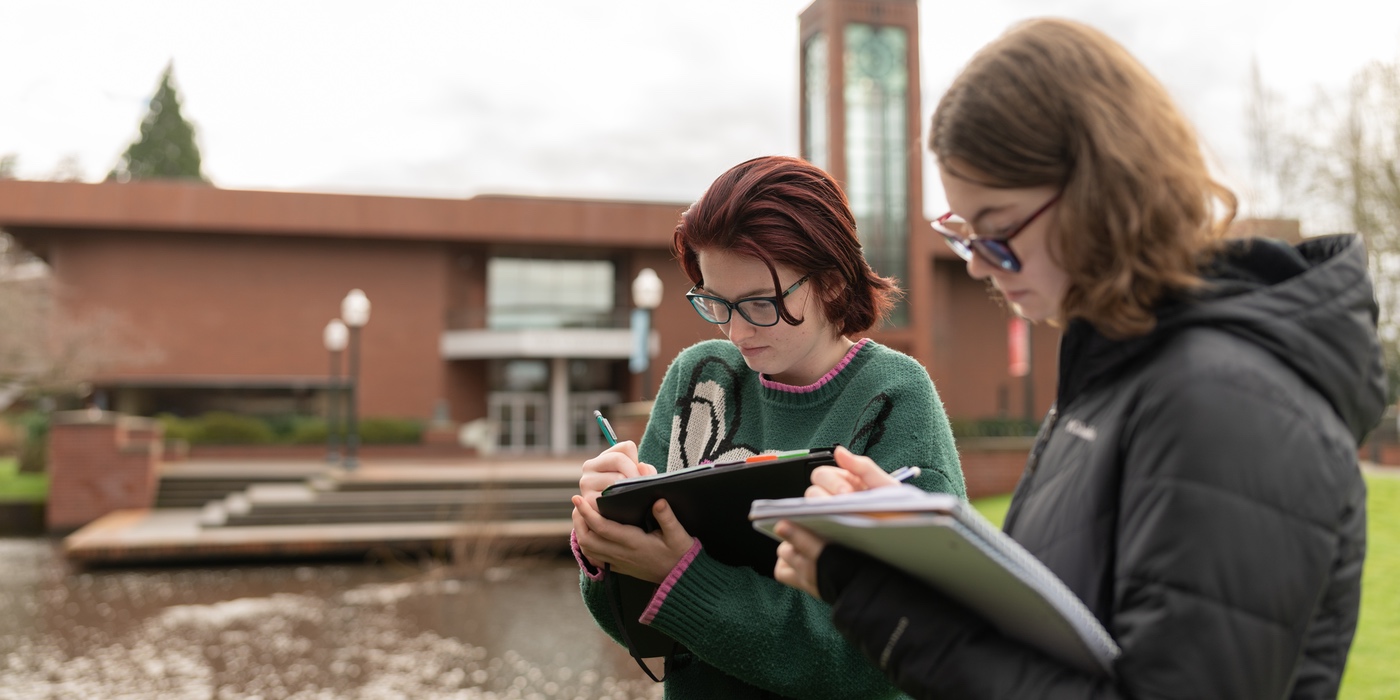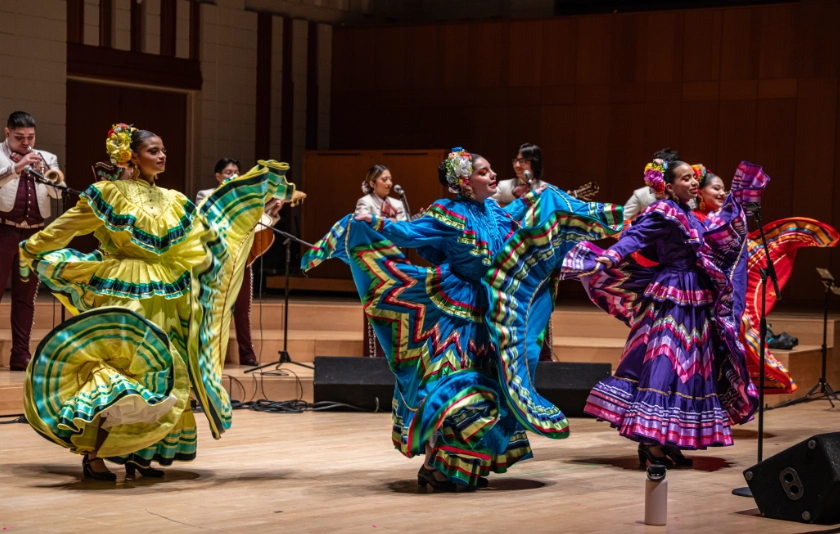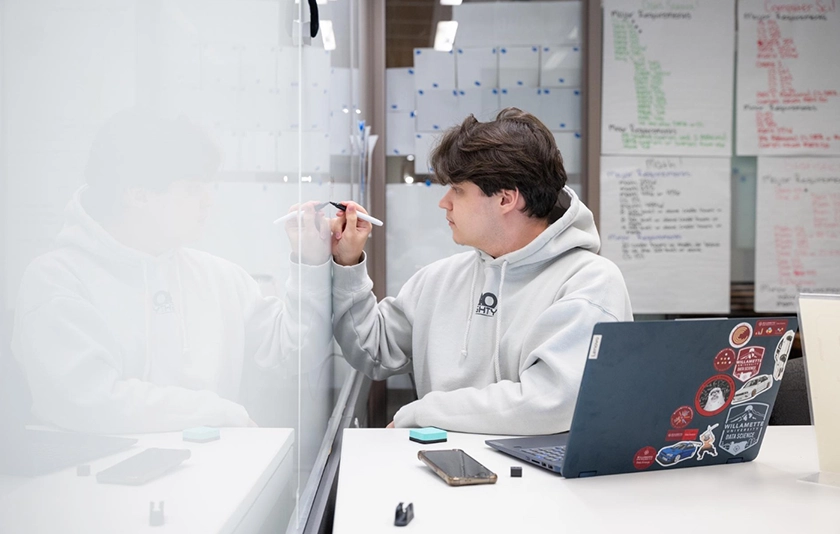From heat waves to record low temperatures, Oregon’s recent extreme weather events pressure all residents to adapt, but the health and safety of the state’s most vulnerable populations have become a priority for local health departments. In an effort to better support these communities, Willamette faculty and students are undertaking a large-scale civic engagement research project to provide Marion and Polk County’s Health Departments with data to effectively communicate environmental health hazards and threats to their most at-risk populations.
“Marion and Polk Health Departments have chosen us to research the most effective ways to engage populations that might be at higher risk,” says Assistant Professor of Public Health Nicole Iroz-Elardo, who co-leads the project. “These might be older adults, the unhoused, farm workers, or people with language, resource, or knowledge barriers — anyone more likely to be challenged in an environmental hazard event.”
To aid their research, Willamette’s Public Health and Environmental Science departments are offering Climate Change and Health and Research in Environmental Health Geography courses. Faculty members from as varied disciplines as Anthropology, Politics, and English are devoting several weeks of class time to address the project from multiple perspectives. The initiative also includes opportunities over the summer, with 20 students partaking in paid research positions.
“Some classes do quantitative work, others qualitative social science, or they work with documents or Geographic Information Systems (GIS),” says Associate Professor of Environmental Science Melinda Butterworth, another project leader. “Students interview stakeholders to try and understand their experiences supporting particular groups during health hazards. We’ve also had classes doing focus groups with recent refugee populations to learn about their experiences.”
The partnership with local officials from Marion and Polk counties — home to Willamette’s Salem campus — are giving students the unique opportunity to translate their studies into local community-based action. “I’m really interested in the intersection of Environmental Science and Public Health,” says Robin Linares BA’28, a student in the Climate Change and Health class. “This course has shown me that these topics can be integrated and meaningfully applied in the real world.”
Before participating, students obtain Institutional Review Board (IRB) certification and trauma-informed training in addition to their regular coursework. Through further collaboration with Assistant Dean For Civic Engagement Tommy Van Cleave, Willamette’s Office of Civic Engagement presented to students about maintaining relationships with community members. “This all helped me understand the importance of maintaining ethical practices in social science research,” Linares shares.
“We like to call this civic-engaged learning,” shares Iroz-Elardo. “Students get to dive into a pertinent issue in our community that is relevant to their coursework and Willamette’s core strategic values, including addressing climate change and engaging democratic institutions.”
The research project runs until the end of Summer 2024.



